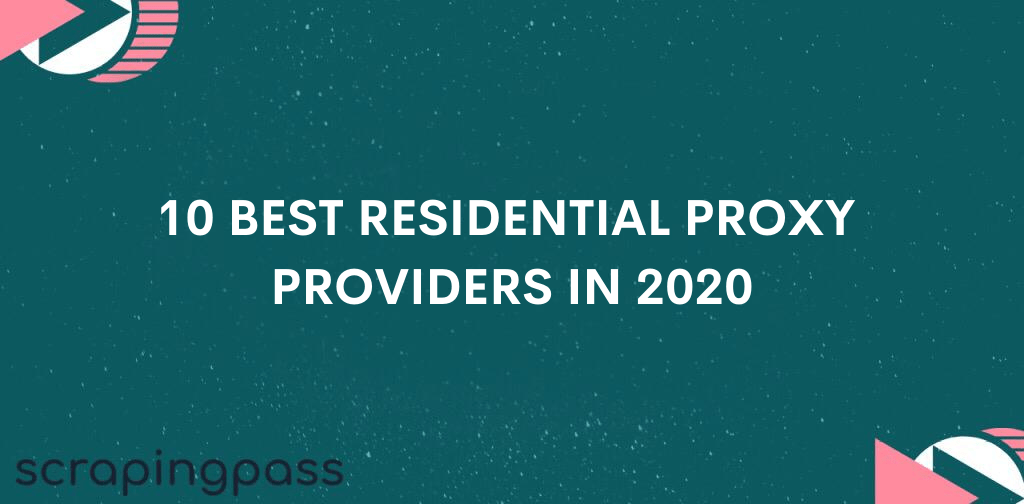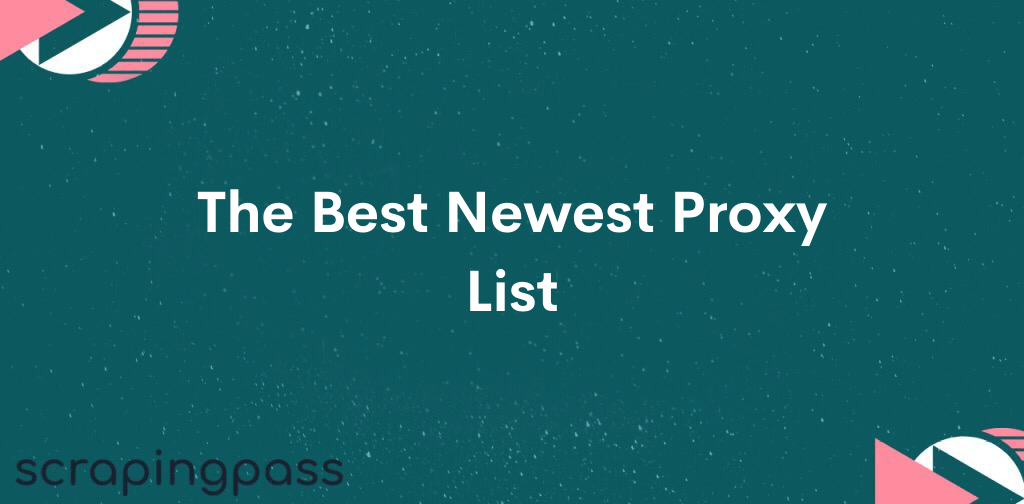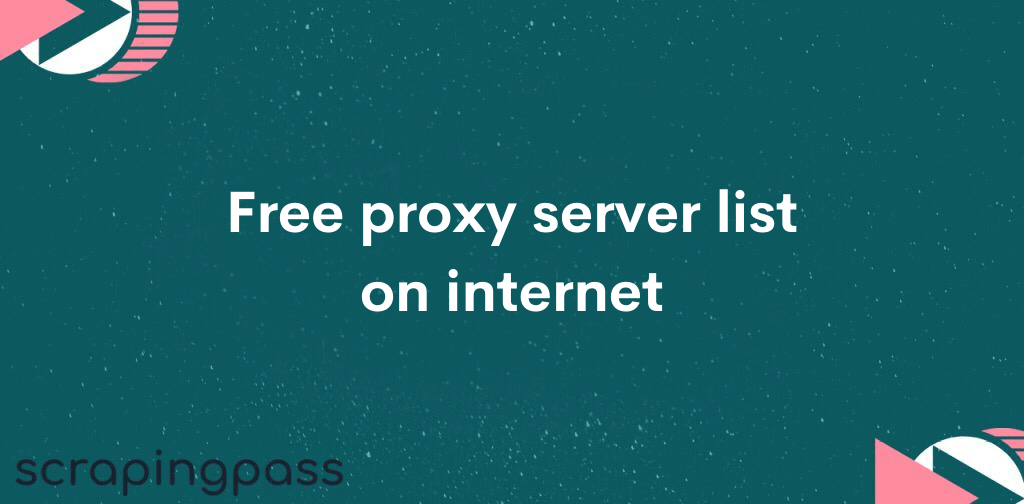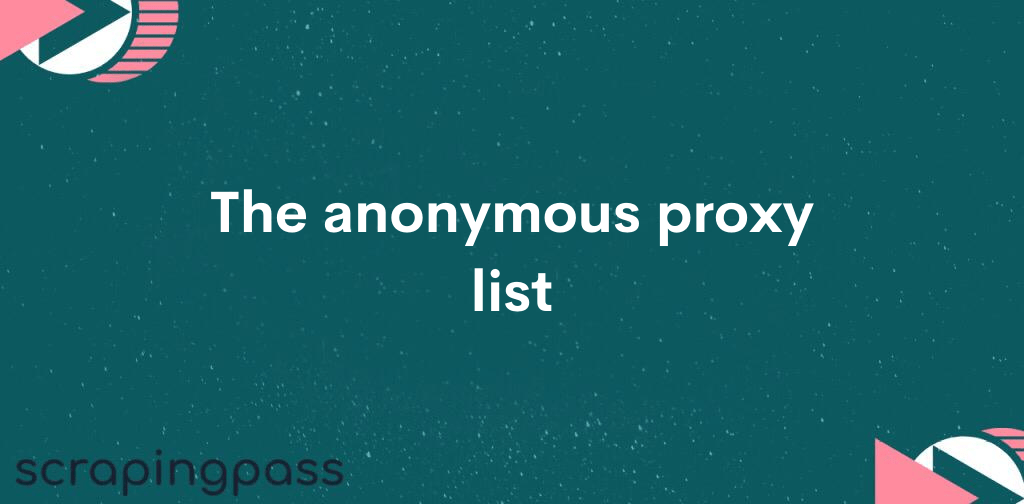Online privacy is more important than ever during this day and age when numerous people want to urge their hands on your data. just about every major corporation collects data, which is then often used for advertising purposes or sold to third-party companies. On rare occasions, malicious actors might use your data and browsing habits for more nefarious purposes. Either way, it always pays to require some precautions when you’re online, and that’s where a residential proxy service can be available handy.
There are many services like that to settle on from nowadays and, unfortunately, not all of them work also as you would possibly expect.
The Best Residential Proxy Services
Below is that the list of our top 10 picks when it involves residential proxies:
- Luminati
- Smartproxy
- Oxylabs
- Microleaves
- Storm Proxies
- GeoSurf
- NetNut
- Anubis Proxies
- Blazing Proxies
Luminati is that the world’s biggest provider of proxy servers in 2019. the corporate boasts a really impressive network of over 35 million residential IP addresses spread strategically across major cities around the globe. Luminati takes great pride in the very fact that it offers an ethical proxy network that serves an outsized amount of Fortune 500 enterprises. the corporate offers a really simple found out process that permits users to put in the service and hook up with any of its servers in just minutes. But that’s not all, it also allows unlimited concurrent sessions and access to their own open-sourced proxy manager that gives users a vast amount of ports.
As if that wasn’t appealing enough already, you’ll get $250 free at Luminati on your first deposit once you purchase a package of residential proxies. The discount can only be applied once per account and essentially gives you 50% off if you’re going for the Starter plan. so as to require advantage of the offer, you’ll get to reach bent a Luminati representative via Skype, WhatsApp, or one among the various other channels and supply a quick explanation regarding your use case. You’ll then got to fill out a KYC (Know Your Customer) form, which is a component of the standard check-in process. Once you complete those steps, all you would like to try to do is make a deposit of a minimum of $250 on your first purchase and you’ll receive another $250 on the house.
One of the most reasons why Luminati managed to become so successful is because the corporate uses a really ingenious strategy to secure residential IPs directly from homeowners. By using Luminati’s SDK, developers are ready to monetize their apps while expanding the proxies network. Your resources are shared with Luminati and by doing so, your IP becomes a part of the company’s network. this technique ensures that Luminati’s pool of IPs come from actual homeowners, which makes them tons more unlikely to be blocked or blacklisted.
Smartproxy is another big service provider that a number of you’ll be conversant in as they need been on the increase lately. Despite being a younger provider compared to a number of the opposite entries on this list, the corporate already features a solid worldwide network of over 10 million residential IPs. Smartproxy has very low ban rates and allows users to focus on IPs from specific countries or maybe cities. Among other things, the corporate also allows you to use a vast number of concurrent connections and threads at any given time.
Smartproxy is sort of a touch cheaper compared to a number of the opposite entries on this list, which can automatically make it a really appealing option for several people.
All the residential IPs employed by Smartproxy come from real devices and don’t share a subnetwork, which is one of the most reasons behind the low ban rates. Smartproxy uses a few of various methods of rotating IPs, one of which allows users to request a replacement IP every session. additionally, there’s also a sticky IP feature that allows you to use an equivalent IP for up to 10 minutes before you’re assigned a replacement one. Smartproxy is especially good for web scrapers but you’ll use the residential proxy service for a good sort of other purposes, including social media marketing, SEO, crawling, and more.
Oxylabs may be a relatively new player on the scene but don’t let its young age fool you because the corporate has already amassed a pool of over 30 million residential IPs. The company’s services are primarily employed by web scrapers and corporations looking to interact in large-scale web data collection. That said, Oxylabs offers great support for a good sort of other online activities, like ad verification, travel fare aggregation, SEO monitoring, marketing research, sales intelligence, and lots more.
Oxylabs promises zero captchas and 0 IP blocking alongside city-level targeting for those that use its residential proxy services. Customers also are granted access to a vast amount of concurrent sessions and a really handy adjustable session control feature. Moreover, the corporate features a solid IP rotation system, and its customer support agents are always helpful and quick to reply.
Established back in 2012, Microleaves is another provider that boasts a huge network of residential IPs. the corporate offers amazing speeds of up to 1 GB/s, a 99.99% uptime guarantee, and unlimited bandwidth. That last part is especially important to say because tons of providers do impose a bandwidth limit on their customers. However, this sort of freedom comes at a price as each of the company’s monthly plans only includes a hard and fast number of proxies you’ll work with.
Microleaves offers three different types of packages — shared HTTP proxies, dedicated HTTP proxies, and back connect proxies. All shared proxies feature non-sequential IPs and are all located within the US, which may be a professional or a con counting on each user’s specific needs. the most cost-effective shared package costs $30 per month but only includes 10 proxies. On the high end of things, you’ll rise up to 300 shared proxies for $600 per month. a pleasant thing about Microleaves is that the corporate offers a moment scaling feature so you’ll add more proxies on the fly.
StormProxies is another great option that has the advantage of being extremely affordable compared to several of its peers. The downside is that the company’s network only features a pool of around 40K residential IPs, all of which are based within the US and EU. Although the pool is comparatively small, the proxies are 100% legit and therefore the IPs rotate every 5 minutes therefore the ban rate is extremely low. a bit like Microleaves, StormProxies offers unlimited bandwidth and its network is very optimized so performance won’t be a problem here.
StormProxies may be a very straightforward service that gives automatic delivery so you’ll be able to start browsing anonymously just about immediately after purchasing a proxy package. This makes StormProxies one among the foremost user-friendly residential proxy services around. Big companies also can get a good amount of use out of it but at this stage, i might primarily recommend the service to individual users. That’s because, among other things, each proxy package is restricted to 1 IP so you’ll only use the ports on one computer.
If you’re trying to find premium residential proxy servers I like to recommend finding out Geosurf. the corporate features a pool of over 2 million unique IPs spread across 130 geolocations around the world. The IPs are supported by a highly secure P2P network, which ensures high anonymity and low block rates. Geosurf primarily targets enterprises with its services so expect the costs to be a touch above average.
Geosurf provides users with full access to its entire pool of residential IPs and includes a couple of nice features that are very useful for data collectors. the corporate designed its services to be coder-friendly, with its API featuring code example snippets in every common programing language. Another nice feature of GeoSurf is its IP rotation system that permits users to send a vast number of requests through its pool of verified and unblocked IPs.
NetNut was established just a few years ago therefore the company remains attempting to form a reputation for itself during this market. At the instant, the provider is trying to face out by focusing exclusively on residential proxy services. As a result, NetNut doesn’t offer the other products and pours all its resources into making its existing proxy packages more appealing. the corporate also uses another interesting strategy for attracting customers, which comes within the sort of a reseller program that members can use to make and manage sub-users.
Unlike other providers, NetNut doesn’t use a P2P network, opting instead for DiViNetworks to power its service. the corporate allows users to settle on between a static IP and a rotating IP that assigns a replacement address on every new browser session. NetNut claims that its residential proxies are search engine-proof which all IPs are pre-verified to make sure maximum speed and success rate. That said, NetNut’s block rates seem a touch higher in comparison to a number of its competitors, so that’s something to stay in mind.
Anubis may be a name that a lot of you would possibly not be conversant in because the corporate is pretty new to the scene. But albeit the corporate is comparatively new, the people behind it clearly know what they’re doing because they found out a reasonably solid operation here. Anubis offers a pool of over 10 million worldwide IPs you’ll work with, including 3 million that are based within the US. the corporate includes unlimited bandwidth with all packages alongside API access, automatic setup, and support for multiple protocols, like HTTP/s, SOCKS4, and SOCKS 5.
Anubis offers four different proxy packages to settle on from. the corporate doesn’t charge per GB of traffic usage but rather by the number of proxy ports included with each package. for instance, a basic package containing 25 back connect proxy ports will set you back $250 per month.
If you’re trying to find fast speeds, you’ll be hard-pressed to seek out a far better option than Blazing Proxies. the corporate definitely lives up to its name and may deliver extremely fast speeds because of its 1 GB/s dedicated network lines. On the flipside, Blazing Proxies features a much smaller pool of IPs at its disposal compared to the opposite companies to the present list. More specifically, the pool consists of only 8,000 IPs spread across 9 different countries, including the US, UK, Germany, and Japan.
In terms of features, you’ll expect instant delivery, unlimited bandwidth and threads, support for multiple protocols, clean IPs, and more. an interesting thing to note about Blazing Proxies is that the company allows customers to request free automatic IP replacements if they happen to return across a nasty IP.
How Residential Proxy Services Work
Proxy services are often used for an honest kind of purpose. as an example, they allow you to watch YouTube videos that can be blocked in your country, create multiple accounts on the same website using different IPs, download content from torrent sites, or simply hide your identity while browsing websites that you simply consider suspicious. Market researchers and web scrapers also greatly enjoy employing a proxy.
Needless to say, these kinds of services are very useful. whilst their name suggests, proxy servers act quite kind of a buffer zone between a personal computer and thus the web. Regular (or dedicated) proxy servers are linked to data centers, which tend to draw an honest amount of suspicion from anybody who decides to look into your online activity more closely. That’s because these kinds of servers use static IPs, so you’re basically logging in from the same location whenever.
Residential Proxies vs VPNs
If you’re already somewhat familiar with online security you’ve probably noticed by now that there are a few of similarities between proxy servers and VPNs. A Virtual Private Network (VPN) could also be a special kind of service that works supported a fairly similar principle. Namely, a VPN acts as a middleman between your machine and thus the web and makes it appear as if your online activities are originating from a special location.
As far because the differences are concerned, there are two important ones that you simply need to confine mind. First off, residential proxy services are used for single applications, like an online browser, online video game, or BitTorrent client. Meanwhile, VPNs are able to hide all the traffic coming from your computer, which allows you to raise mask your online activities. The second main difference is that connections through a VPN are encrypted while those via proxy servers aren’t.
Pros and Cons for Both Services
In theory, this is often ready to make VPNs overall better than proxy servers, however, things could also be a touch more nuanced than that. VPNs tend to be costlier while also eating up a variety of your machine’s resources like bandwidth and processing power. Proxy services, on the other hand, won’t have any significant impact on your computer’s performance and you will find plenty of free options out there, though the only ones will still cost you. In short, there are pros and cons to each kind of service but they both have their uses.







Abhishek Kumar
More posts by Abhishek Kumar